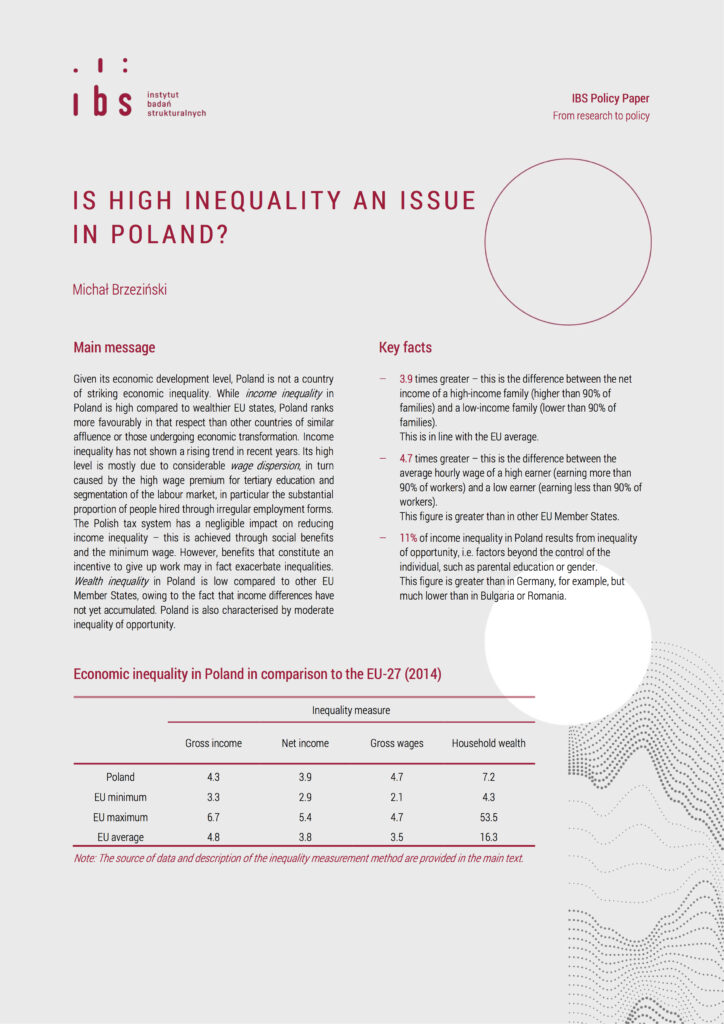In recent years, growing economic inequality has become one of the most debated social and economic problems in the world. Over the last three decades, most OECD countries have recorded a pronounced rise in income inequality. A number of researchers, politicians and economic commentators have suggested that the level of inequality has passed the tipping point beyond which economic growth may be weakened, social mobility limited, the social divide exacerbated and political power permanently concentrated in the hands of the wealthy. This paper analyses the multiple dimensions of economic inequality in Poland. Subsequent parts of the paper focus on: wage dispersion, income inequality, the evolution of wage dispersion and income inequality in Poland since 1989, wealth inequality, inequality of opportunity, relative poverty.

The author would like to thank Beata Kwiatkowska, Piotr Lewandowski and Jan Rutkowski for their helpful comments and remarks. The usual disclaimers apply. Independent study based on Eurostat data. Eurostat has no responsibility for the results and the conclusions. The content of this publication reflects the opinions of the author, which may diverge from the position of the Institute for Structural Research.

